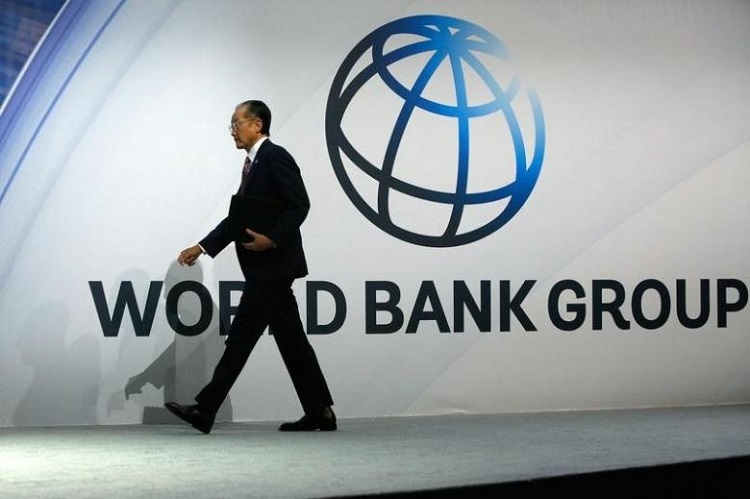Bangladesh lukewarm to World Bank's development policy credit
 Bangladesh is found reluctant to take the World Bank's development policy credit (DPC), a financing window to support government's policy and institutional reforms, officials said.
Bangladesh is found reluctant to take the World Bank's development policy credit (DPC), a financing window to support government's policy and institutional reforms, officials said.
The multinational lender had been in talks with the government for years on reforms of various financial policies and was ready to offer DPC in this regard, they added.
Though the government is continuing negotiations it is not that much interested to take such credit which is usually tagged with time-bound reforms.
Officials said between 2003 and 2008, the World Bank agreed to support 10 reform projects extending US$1.565 billion worth of DPC.
During the period, various projects were completed with credit support for voluntary retirement scheme (VRS) in the state-owned enterprises, enterprise growth and bank modernisation, setting up of Adamjee export processing zone and emergency support after the cyclone Sidr.
They said despite having some positive results, the government did not take any more DPC after 2008.
"We submitted a document to the finance ministry identifying potential areas of policy and institutional reforms several months back which can be supported by the DPC. But we are yet to receive any feedback," a senior World Bank official in Dhaka told the FE.
He said the government agrees that carrying out a massive financial policy reform is necessary to streamline Bangladesh's policies with international ones.
However, finance ministry officials are pursuing a 'go-slow policy' in concluding negotiations, he noted.
According to the World Bank submission, it wants to support initiatives in four strategic areas which are fiscal reforms, investment climate and competitiveness, financial sector reforms, and energy sector reforms.
"Given the extensive policy and institutional reform agenda facing Bangladesh, the WB's deepening engagement on related initiatives, and the expected expansion of Bangladesh IDA envelop between FY 2018 and 2020, there is substantial scope for re-deploying DPCs to underpin the coherence and momentum of reforms," the bank said.
It said the DPCs can help underpin development, articulation, coordination, and implementation of key policy and institutional actions.
"DPCs can also serve as an important signal to the private sector, development partners, and other stakeholders about the trajectory of the GoB's reform effort, as well as overall commitment," the WB submission mentioned.
The WB note said Bangladesh's macroeconomic performance in recent years has been solid, but redoubled effort will be needed for further initiatives that are at various stages of development and implementation.
It also underscored the need for boosting domestic revenue mobilisation for greater fiscal space, strengthening revenue projections to underpin macroeconomic stability, bolstering debt and cash management to ensure fiscal discipline, strengthening audit for greater accountability, expanding electronic public procurement for grater transparency and efficiency.
In the investment climate and competitiveness front, the World Bank found urgent reforms needed in enactment of rules under the civil procedures code regarding mandatory mediation of civil and commercial cases, approval of new customs act and companies act, and rationalisation of tariffs on inputs for key sectors with high export potential.
The World Bank also emphasised on modernisation of state-owned banks, addressing non-performing loans, improving credit standards, strengthening regulatory oversight, and expanding financial inclusion.
In the energy field, the World Bank underlined the need for taking initiatives to attract investors with state-of-the-art technology to boost gas exploration and production, reforming the gas pricing regime, corporatising remaining distribution assets under BPDB, and renegotiating rental power contracts.
A senior official at the ministry of finance (MoF) told the FE that the government was interested in taking DPC as it find reforms are necessary and the loan is soft in nature.
But, he said, in case of DPC, at the initial stage of disbursing credits, everything seems to be fine. In the middle period, the World Bank starts tagging various conditions with disbursement of next tranche of fund.
It also tags time-bound implementation of various reform initiatives, which is very hard for a political government, the official said.
"The government now is in a row with businessmen on implementation of a new VAT law which it committed while taking extended credit facility from the International Monetary Fund," he said citing an example.
"But, we want DPC from the World Bank, but not in a hurry," the official said seeking anonymity.
Lead economist of the World Bank in Dhaka Dr Zahid Hussain told the FE usually DPC is being disbursed as budgetary support for carrying out reforms.
He said presently negotiations are underway for taking a project for improving doing business indicators in Bangladesh which can be supported by DPC.
"But, no significant progress is there for DPC in other fronts," Dr Hussain said.
Other Posts
- UCB holds meeting with managers of Dhaka branches
- Most banks at high cyber risks
- ADB to establish HLT fund for projects in Asia, Pacific
- BB fears pressure on forex reserves to rise further
- BD bags highest release against 2016 targets
- Shaikh Md Wahid-Uz-Zaman, Chairman of Janata Bank Limited, presiding over its Board of Directors Meeting at its head office in the city recently. The meeting approved its Financial Statement-2016. Md Abdus Salam, Managing Director, Manik Chandra Dey, Khon
- HSBC pre-tax profit slides but hails 'good result'
- Syed Waseque Md Ali, Managing Director of First Security Islami Bank Ltd, inaugurating its relocated Banani Branch in the city on Tuesday. Quazi Osman Ali, Additional Managing Director, Abdul Aziz, Md Mustafa Khair, DMDs of the bank, local elites and busi
- India passes new law to tackle bad debt
- Md Sanaullah Shahid, EC Chairman of Shahjalal Islami Bank Limited, presiding over its 707th meeting at its head office in the city recently. Farman R Chowdhury, Managing Director, Fakir Akhtaruzzaman, Vice-Chairman, Anwer Hossain Khan, Mohammed Younus and




Comments